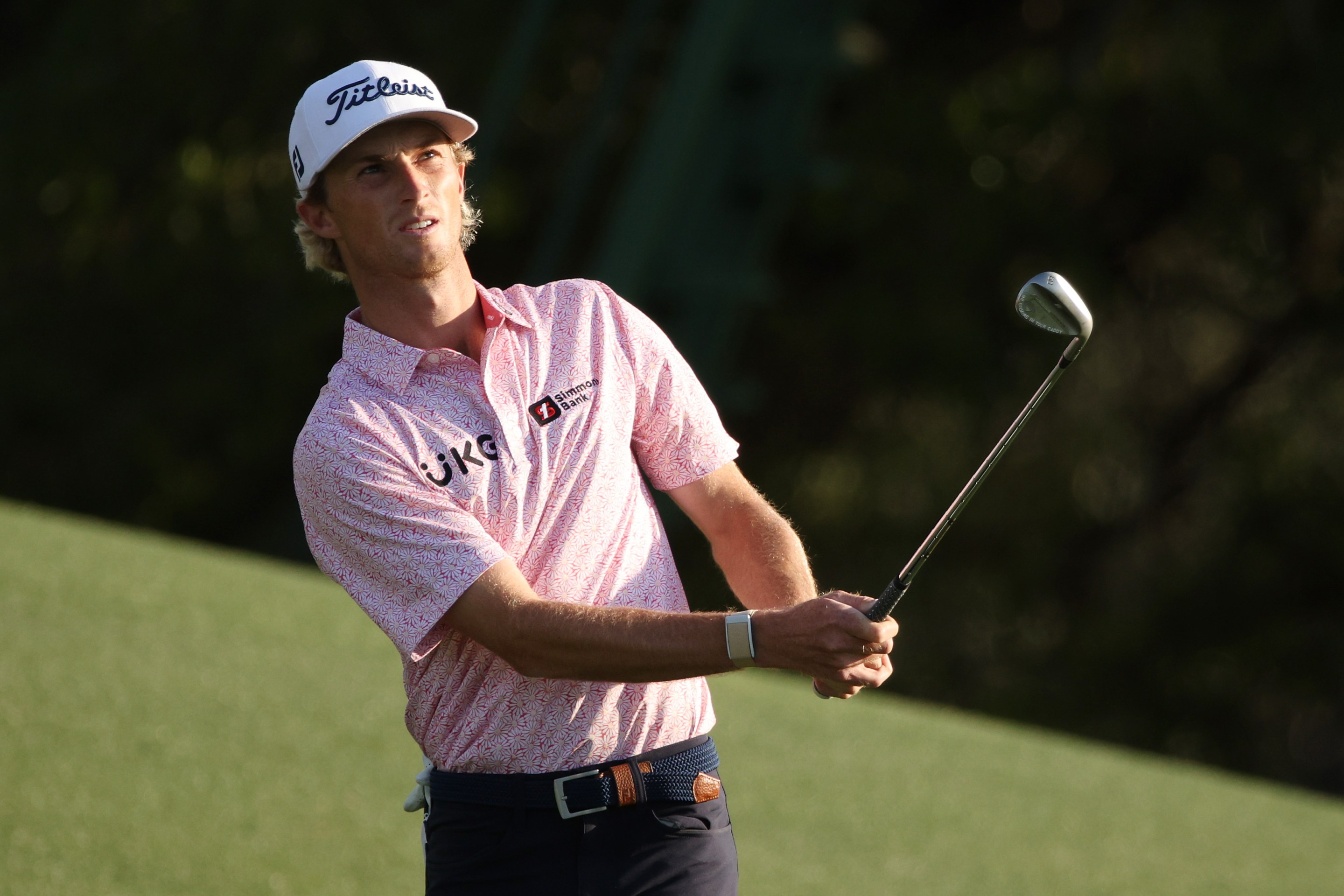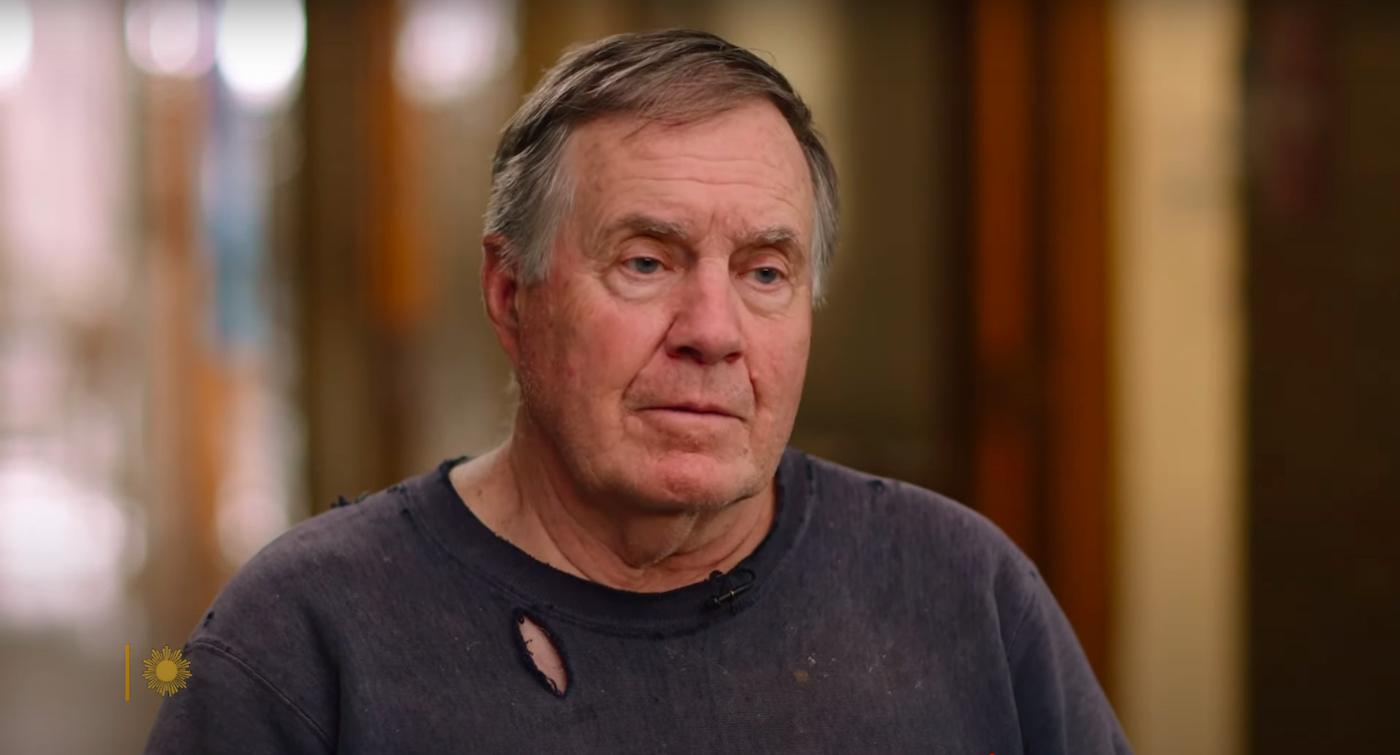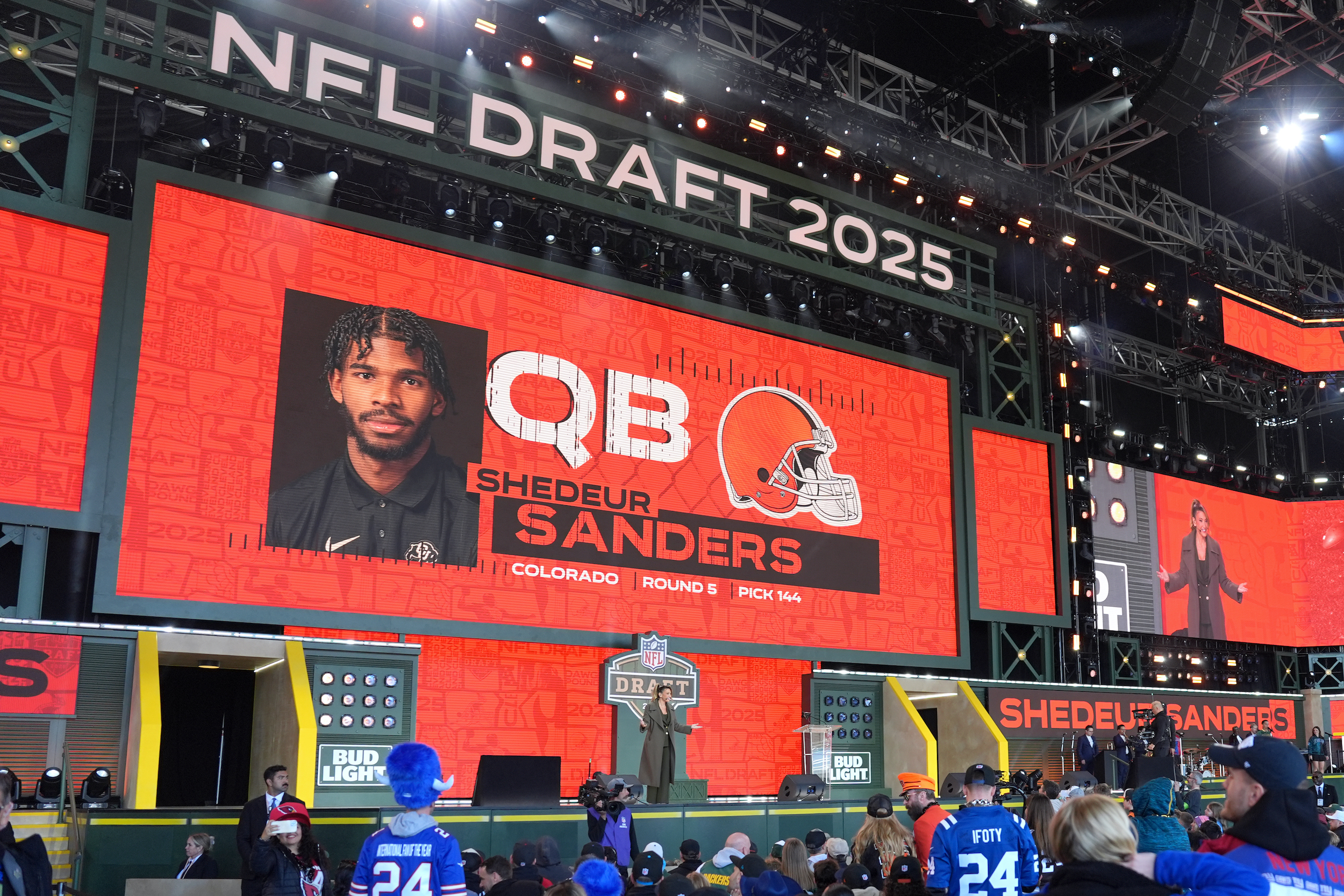For a combination of different reasons—surgery recovery, COVID, a lack of real competition from other sports, the fact that I swung some clubs for the first time since I was a kid like a month ago, and that the very first thing I saw when I turned it on was Jordan Spieth hilariously smacking the ball square into a tree—I watched more of this year's Masters than I'd ever had for any other golf tournament ever. Though the 2021 Masters was more notable for the historical significance of its winner, Hideki Matsuyama, than for any gripping late-round dramatics, it was still a solid competition in which one man's consistent execution eventually pulled him away from a cluster of contenders.
I would be lying to you if I said any of the guys in the top five at Augusta, or even at the top of the World Golf Rankings, were anything more than vague names I kind of recognized, so by Friday I developed a somewhat embarrassing strategy for finding a rooting interest: support the cute one. And it actually kind of paid off! Will Zalatoris—whose given name might as well be "Young Will Zalatoris" with how often the commentators referred to him as such—very nearly pulled off the unthinkable by winning his debut at the Masters. At a course fetishized for the way it rewards knowledge earned by experience, the 24-year-old was the only guy in the field who shot below 72 on every single day, and he ended up just one stroke behind Matsuyama at the end—good for second place, over a million dollars in prize money, and the best showing by a tournament rookie since 1982, when a guy named Dan Pohl lost in a playoff. As I have already established, I am very shallow and not a golf knower, but I am willing to claim that this skinny little blondie—who bears the nickname "Showtime" because he could easily be in the movies—has The Stuff.
Despite an eagle on 15 on the first day that briefly tied him for the lead, Zalatoris didn't really feel like a contender after Thursday, in part due to his relative anonymity and in part because Justin Rose so dominated the headlines. But by the end of Friday, after a round that saw him nail five birdies on the back nine, the kid who ended 2019 ranked 672nd in the world was in second place on the leaderboard, just one stroke behind Rose.
Capping his second round off with three-consecutive birdies, Will Zalatoris is six under par for the Tournament. #themasters pic.twitter.com/Eo0pVsCkbS
— The Masters (@TheMasters) April 9, 2021
At this point, I was fully on the bandwagon and learning more about Sweet Young Will. The Wake Forest Demon Deacon hit a sick hole-in-one at last year's U.S. Open, where he finished in an impressive sixth place. He's also really close buds with Tony Romo, who Will calls "basically a big brother." And his route from the developmental tour to these kinds of big-ticket events was all sorts of complicated, as COVID delayed his chance to earn a PGA Tour card until August 2021 but also opened up some of the criteria for the U.S. Open, where his great play (and strong follow-up performances) gave him the status of a special temporary member.
And my goodness has he made the most of that little opening he was given, and even with what had to be more pressure than he's ever felt on a course before, Zalatoris continued to deliver through the weekend, playing calm and smart and avoiding anything worse than bogey through the entire tournament. Though he couldn't compete with Matsuyama's monster round on Saturday, his 71 still put him in a four-way tie for second, and then on Sunday, as the eventual green jacket wearer teed off on 18, he was the only other golfer with even a prayer of still winning. Zalatoris needed Matsuyama to score a six on the the par-four final hole to force a playoff; the winner tapped it in on his fifth shot.
Matsuyama's fairly weak finish—three bogeys in the last four holes—actually puts Zalatoris's -9 final score in a new light. After a couple of bogeys early on the back nine, Zalatoris felt entirely out of contention, and the story of his weekend was mainly one of remarkable potential and thrilling near-greatness. But no matter how wrapped up the Masters actually felt near the end, looking at the leaderboard forces this thought into your head: If Zalatoris had pulled off just one more shot, everything could have been different. For my brain, that shot was his uncharacteristic failed par putt at 12, when he was already trailing Matsuyama by five strokes.
Talking to the media afterwards, Zalatoris seemed to be doing a healthy job balancing out the understandable feeling of disappointment with the optimistic outlook his weekend deserves. He has a lot to be proud of! And he definitely appreciates it.
“It's just kind of sitting right in front of me, thinking through where I could have found that one or two shots, really,” he said. “But the fact that I'm frustrated I finished second in my third major says something.”






